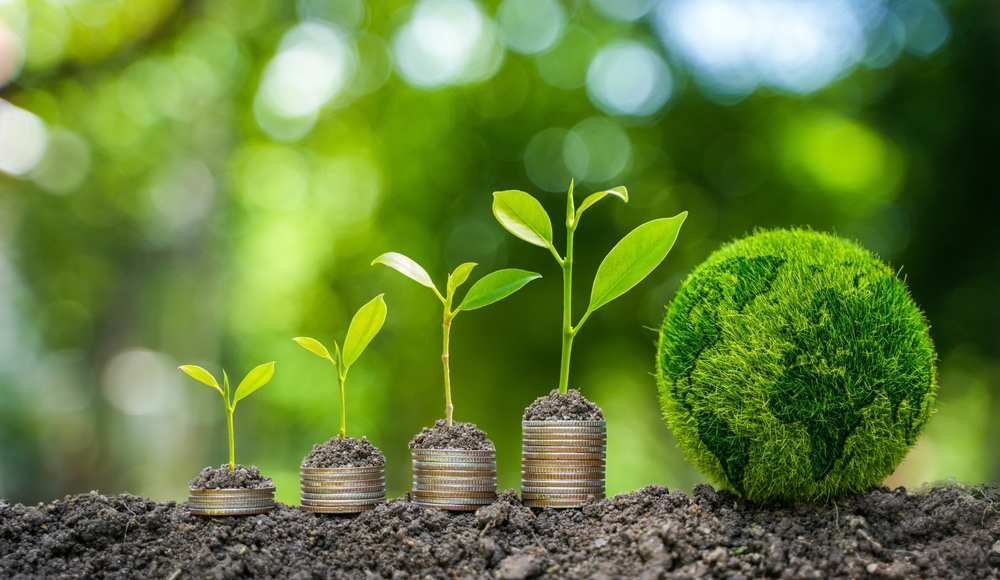China Business Knowledge White Paper Series: The Unstoppable Rise of Sustainable Investing
Professors Darwin Choi, Gao Zhenyu, Jiang Wenxi and Jo Chanik, Department of Finance, CUHK Business School
HONG KONG SAR - Media OutReach - 13 July 2023 - We live in an era of the unprecedented and rapid warming of the global environment due to human activities.So far, global temperatures have already risen by 1.1 degrees Celsius above pre-industrial levels, and the world has also witnessed a rise in the number of extreme weather and climate events, particularly in 2022 which was dominated by headlines of heat waves in Europe, flooding in Australia and drought in China. 
This fight against climate change will require firms and governments alike to commit unparalleled levels of financial resources and investment, but at the same time, a transition to a green economy can unlock future economic opportunities and jobs. For instance, sustainable investing is becoming increasingly popular as more and more people have come to realise the importance of a low-carbon economy. A recent report estimated that total ESG-related assets under management (AuM) will rise to US$33.9 trillion by 2026, from US$18.4 trillion in 2021.
Given that climate change is widely expected to become increasingly important to investors, in this CUHK Business School Research White Paper, we shall seek to examine how institutional and retail investors perceive the risks and opportunities associated with climate change and how they will react in response.
Investors Turn to Low-emission Companies
For example, with extreme weather becoming more frequent, people are becoming better aware of the seriousness of climate change after personally experiencing it. Can this translate into different performances on the stock market for companies depending on their carbon footprint?
We found that during abnormally warm weather, retail investors become more aware of climate change and sell stocks belonging to high-emission industries. Our research suggested that it is only by appealing to the personal and salient experiences of individuals can this challenge be most effectively tackled, such as by using maps to demonstrate how the potential rise in the sea levels as temperatures rise will affect everyone. We also expect that when the general population has a better understanding of the severity of global warming, the link between abnormal warm weather and stock prices would weaken. 
Within the market, institutional investors are a segment whose decisions can have a great impact on the overall sentiment. How will these large-scale investors react to global warming?
Over 500 institutional investors with US$39 trillion in assets under management signed a statement in September 2022, advocating for governments to implement ambitious policies to combat the climate crisis effectively. Our results show that over the last two decades or so, large-scale investors have generally reduced their holdings in high-emission companies, from overweighting the stocks of high-emission firms, relative to the market, by 0.5 percent in 2001 to underweighting them by 0.2 percent to 0.7 percent since 2015. Our findings support the notion that institutional investors are generally becoming more aware of climate risks and actively avoid industries with high carbon footprints, similar to the case of so-called "sin" stocks such as tobacco, alcohol and gambling on ethical considerations.
Public Companies Reduce Carbon Footprint
While some investors adjust their investment decisions in response to climate change, companies also face mounting pressure to become more environmentally friendly. Can climate risks really affect the valuation of a firm on the stock market, and how does this translate into its business decisions on the operational level?
We took a look at the gap in stock market valuation that can exist between companies that are classified as high- or low-emission. Our results indicate that the valuation of high-emission firms has become lower than low-emission firms in recent years.
We found that when the valuations of high-emission firms fall, these same companies would respond by taking actions that lower their carbon emissions. In addition to reducing their carbon footprint, they would also increase the ratio of green patent fillings that allow them to operate in a more environmentally-friendly manner. We also found that private firms with large carbon footprints did not respond to climate change in the same way as their public counterparts, which may be due to the fact that they do not face similar divestment and price pressures directly.
Finally, previous studies have shown that climate change does affect the portfolio choices of institutional investors, but there is little information about its impact on the retail side. If companies with high carbon emissions come under pressure from investors, what happens to their employees? Do families working for high-emission industries face additional risk to their income streams and would they change their investment behaviours as a result?
We investigated the investment behaviour of households employed by companies in high-emission industries. We found these households tend to reduce their level of risk-taking behaviour due to concerns over their own income stream.
Consistent with our previous findings that personal experiences of global warming can update people's beliefs about climate change, we further found that when people experience natural disasters, this intensifies the effect of regulatory risks on the investment behaviour of high-emission households. This may be because they anticipate tighter regulatory enforcement in the future.
Moreover, we found households employed in high-emission industries tend to be less wealthy, younger, and less well-educated. The implication is that climate regulations may reinforce wealth inequality by making less wealthy households less likely to take financial risk, in turn making it harder for them to accumulate wealth. Policymakers should thus seek to implement climate regulations that do not increase income risks for households employed in industries most affected by climate change regulations.
Sustainable investing is becoming mainstream in the investment world. Companies, regardless of their carbon footprint, need to understand its effects on their financial as well as operational well-being, as investor behaviour continues to evolve in the current era of heightened environmental awareness. In the future, we will continue to study the impact of climate change on investment and on the evolution of people's perceptions about climate risks as it relates to financial markets. We also look forward to continuing to explore how finance as a discipline can help to contribute to combating climate change.
Learn more: https://cbk.bschool.cuhk.edu.hk/research-whitepapers/the-unstoppable-rise-of-sustainable-investing/
Hashtag: #CUHKBusinessSchool #ChinaBusinessKnowledge
The issuer is solely responsible for the content of this announcement.



















